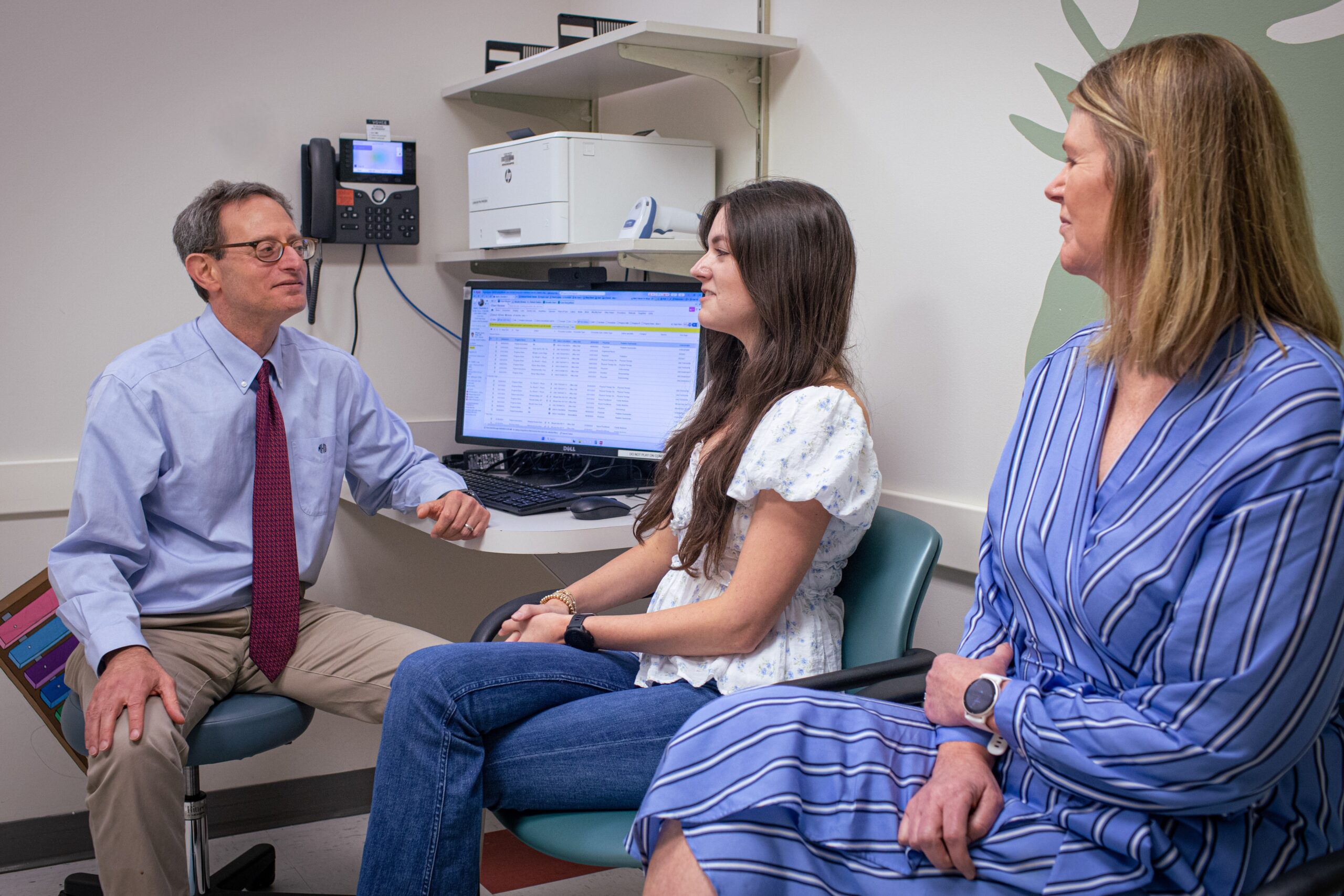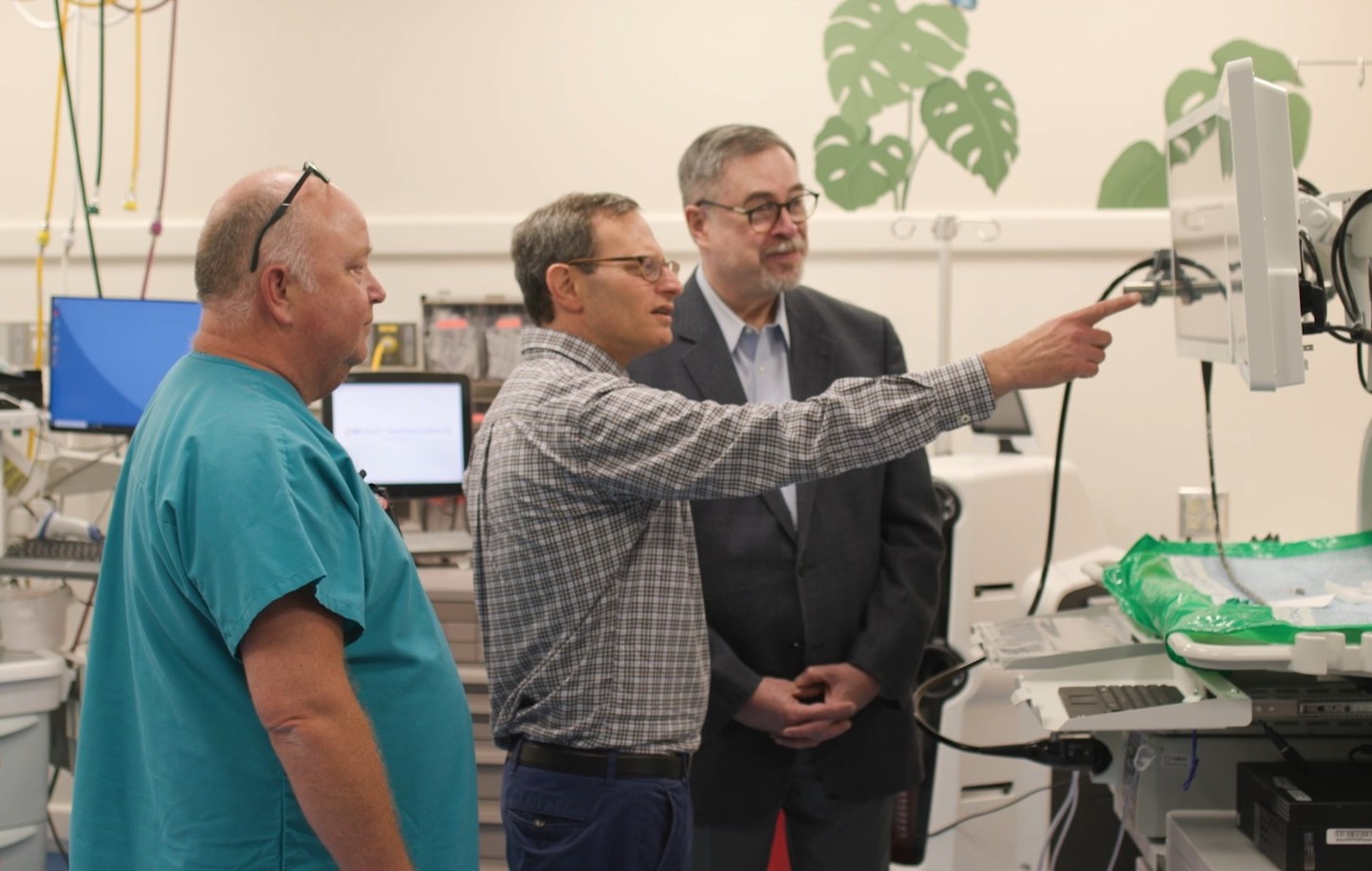Professor, Department of Pediatrics, Division of Pediatric Gastroenterology; Adjunct Professor of Epidemiology; University of North Carolina School of Medicine at Chapel Hill, NC
Dr. Kappelman has made it his mission to answer some of the most pressing questions posed by patients, families, clinicians, and policymakers: What treatments are most effective? What is the true burden of IBD? How can we advance standardized care?
Since his earliest days as a trainee, Dr. Kappelman has focused on optimizing therapeutic strategies to improve outcomes for young people with IBD. As a trainee, he became interested in how and why care differed between treatment centers and became the first to document widespread inter-center variation in the management of children with IBD.
With a goal to standardize the use of best practices among care centers, with like-minded peers he helped build what is now known as ImproveCareNow, a collaborative community where patients, parents, clinicians, and researchers work together to improve the health and care of patients with Crohn’s disease and ulcerative colitis. This pediatric IBD Quality Improvement Network is now comprised of more than 100 care centers across the country – sharing the latest in evidence-based care and tools to increase the number of children in remission.

“When families are involved in every step, the research becomes more relevant. The questions are sharper, the answers matter more, and the results are more likely to change lives.”
Adept at convening experts to work towards a shared objective, Dr. Kappelman developed the IBD Partners Network in collaboration with colleagues at the University of North Carolina (UNC) and the Crohn’s & Colitis Foundation. This novel, internet-based, direct-to-patient research platform enrolled more than 15,000 adult and 1,000 pediatric participants and has been used by investigators around the world to push IBD science forward. The registries were comprised of patient-reported data captured via a series of online surveys on topics including diet, treatments, and other issues concerning patients’ disease management and quality of life. He then led its transformation into the Patient Powered Research Network, giving patients a role in network governance, research prioritization, and knowledge dissemination.

An important area of Dr. Kappelman’s research is uncovering how medicines approved for adults can be used to improve outcomes in children. His early research on anti-TNF therapy helped to establish it as the standard of care in pediatric Crohn’s.
“IBD in children is a distinct entity. It affects growth, development,schooling, friendships—entire families.
His subsequent research with the landmark Clinical Outcomes of Methotrexate Binary treatment with INfliximab or adalimumab in practice (COMBINE) trial, the largest randomized clinical trial ever conducted in pediatric IBD, revealed that adding methotrexate to certain anti-TNF therapy could improve outcomes over monotherapy. Now he’s working with colleagues at ImproveCareNow to develop shared decision-making tools to help patients and providers have more informed conversations about treatment, including what the findings from the COMBINE trial mean for them.
Dr. Kappelman is also addressing another critical knowledge gap – how well newer IBD medicines work in children. His $14 million PCORI-funded Clinical Outcomes of Medications Post Anti-TNF: Researching Effectiveness in Pediatric IBD or COMPARE- Pediatric IBD study aims to generate real-world data on the use of newer biologics and advanced therapies to compare the clinical effectiveness and safety of these treatments currently used off-label in pediatric patients. While newer medicines are increasingly being used, they have been markedly understudied in kids. His research will provide the evidence to compare these medicines against each other in the most rigorous way possible.
“These are the kinds of answers pediatric gastroenterologists need. Families deserve to know which treatments will give their child the best chance to feel well, grow, and do all the things kids are supposed to do.”
To continue driving advances, investment in research is critical – but policymakers need to know where their dollars can make the most impact. Dr. Kappelman’s epidemiology research provides important information for this equation.

As co-Principal Investigator for a recent Centers for Disease Control (CDC)-funded epidemiology study, Dr. Kappelman conducted the most comprehensive assessment to date of pediatric and adult IBD. Key among the many findings was that pediatric IBD rates are increasing, with over 100,000 Americans under 20 now living with IBD. These numbers are up about 22% for Crohn’s disease and 29% for ulcerative colitis over the 2009 prevalence data. The study also showed that more people over the age of 65 are living with IBD than any other age group.
“This study affirms that we need to invest in more treatment research and look at specific populations more closely,” he explained. “For instance, IBD has a big impact on American seniors, but they’re not well studied. They should be because they’re different in many ways.”
As co-PI of a second CDC-funded study, Patient Reported Outcome Monitoring, Other Technology, and Education in IBD (PROMOTE IBD), Dr. Kappelman and colleagues are evaluating the role of social drivers of health in patients with IBD and testing the effectiveness of a text-based patient monitoring and communication system to improve patient activation and decrease health disparities.

Encouraging the next generation of researchers to continue searching for answers is core to Dr. Kappelman’s vision for better IBD care. Among his students and junior staff, he is known as a generous mentor – giving his time, careful attention, and valuable advice to help them advance their careers and drive innovation in IBD science.
His advice is paying dividends for the field, as many of his mentees have gone on to hold research positions in both academic institutions and industry. His commitment to developing future leaders earned him the 2020 UNC Pediatric Mentor of the Year award.
Looking ahead, Dr. Kappelman is focused on how to best use and position the tools that are available, whether those tools are medications or nutrition or surgery or diagnostic tests. His gift for collaboration, genuine compassion, and transformative research will continue to raise the standard of care and improve the quality of life for young patients and their families.
“We can only change the future of IBD if we work together—patients, clinicians, researchers, and families. The best part of my job is knowing that every study, every conversation, every connection might help children with IBD live healthier and happier.”